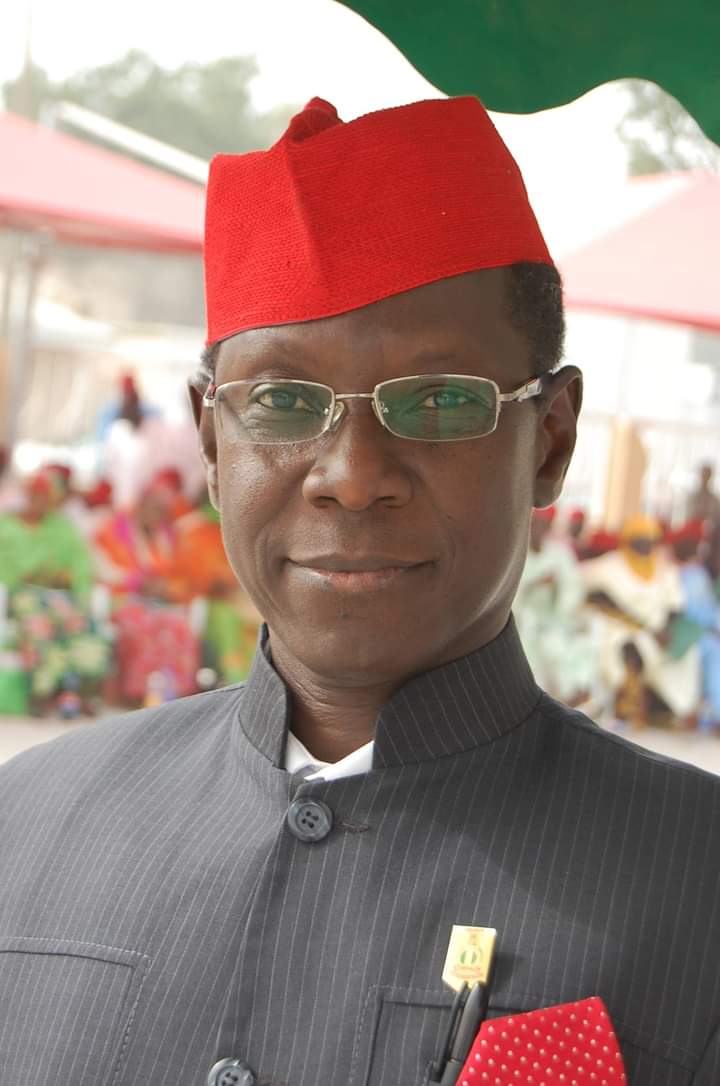Tinubu is not a Lagos indegene, he wants non-indigene in power to support himself, says Kofowola Bucknor-Akerele

By OUR REPORTER
Deputy Governor of Lagos State from 1999 to 2002, Senator Kofowola Bucknor-Akerele, has expressed concern over the growing political dominance of non-indigenous individuals in Lagos.

Bucknor-Akerele, whose time as deputy governor was when Senator Bola Ahmed Tinubu was governor, shared her thoughts on the issue, attributing the situation to deliberate actions aimed at sidelining indigenous Lagosians.
In a detailed interview with The Nigerian Tribune published on Saturday September 21, 2024, she explained that the exclusion of indigenes from key political positions in Lagos State is part of a long-term strategy that has evolved since her time in office.
During her tenure as deputy governor, Kofoworola Bucknor-Akerele observed the gradual rise of non-indigenous politicians occupying the political powers to the detriment of indigenes of Lagos State.
She highlighted that this trend began during the administration she was part of, pointing to Tinubu’s leadership as a critical factor.
According to her, despite Bola Tinubu’s prominent role in Lagos politics, he himself is not an indigenous Lagosian, a fact that she believes influenced his approach to governance in the state.
She suggested that Tinubu’s actions during his time as governor were aimed at surrounding himself with loyalists, many of whom were not from Lagos.
It will be recalled that virtually all the vital political office holders during Tinubu’s administration in Lagos included Professor Yemi Osinbajo (SAN), his Commissioner for Justice and Attorney General (Ogun State indigene), who had his twin brother Akin Osunbajo (SAN) equally serving as Commissioner for Justice and Attorney General in the Otunba Gbenga Daniel government in Ogun State.
Other non-indigenes Tinubu surrounded himself with were Mr. Wale Edun, his Commissioner for Finance (from Ogun), Engr Rauf Aregbesola, Commissioner for Works (from Osun), Mr. Dele Alake, Commissioner for Information and Strategy (from Ekiti), Alhaji Lai Mohammed (from Kwara) among several others.
The former Deputy Governor, Senator Bucknor-Akerele, went on to imply that Tinubu’s background played a significant role in shaping his political strategy.
She asserted that Bola Tinubu, aware of his non-indigenous status, worked to promote other non-Lagosians into positions of power in order for him to gain support against the indigenous people who are constitutionally and naturally bestowed the rights to govern themseles as state creation was done to bring governance closer to the Nigerian people on their respective land.
This, according to Bucknor-Akerele, was a way for him to secure support and control over the political landscape of the state.
In certain quarters, Tinubu’s sack that saw over 10,000 civil servants pushed from the Lagos State Civil Service was done with intent to purge the state public and political offices of indigenes.
The massive recruitment of non-indigenes into the service since then further vindicates complaints of the indigenes about marginalisation and usurpation of their rights, benefits and opportunities.
By elevating non-indigenous politicians, Senator Bucknor-Akerele believes that Tinubu ensured that his influence would remain unchallenged, particularly by indigenous Lagosians who might have resisted his policies.
The controversy surrounding the political representation of indigenous Lagosians has continued to stir debate in the state.
Many Lagosians feel that their rights and opportunities are being eroded by individuals who do not have deep-rooted ties to the area.
Bucknor-Akerele’s remarks have reignited discussions on the issue, particularly among those who feel marginalized by the current political dynamics in Lagos.
Bucknor-Akerele’s comments reflect a growing sentiment among some indigenous Lagosians who feel excluded from key leadership roles in their state.
As Lagos remains Nigeria’s economic hub, the struggle for political control has intensified, with both indigenes and non-indigenes vying for influence.
The former deputy governor’s statements suggest that this power struggle has historical roots, dating back to the early 2000s when non-indigenes began gaining prominence in the state’s political hierarchy.
She said, “I am an indigenous Lagosian and, therefore, I feel very strongly about it because I think it is being purposely done. It is being purposely done that non-Lagosians should take over the most important positions from indigenes of Lagos State.
“We started noticing it when Tinubu and I were in power. Let’s face it. Whatever anybody says, Tinubu is not a Lagosian and I feel because of that, he wanted to put non-Lagosians in power to support him.
“I think he knew that with his background and antecedents, it would be difficult for him to do maneuvers in Lagos State and so he started promoting non-Lagosians into positions of power,” she said.








